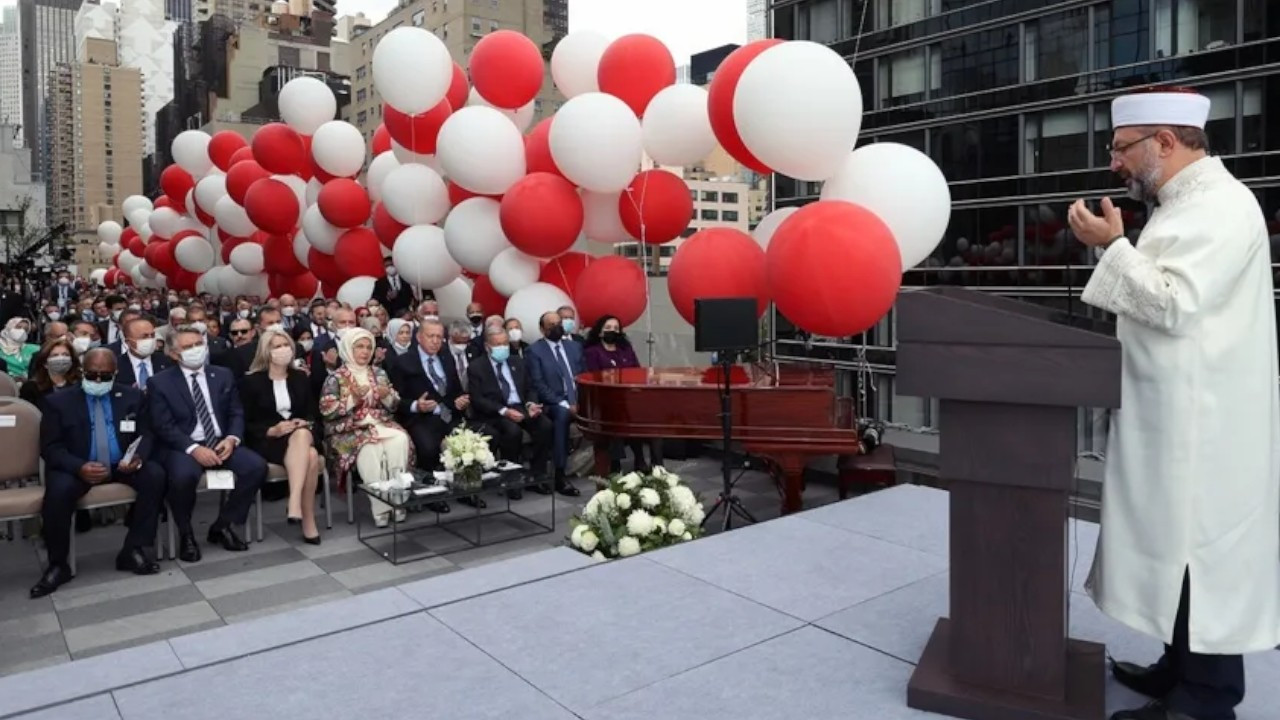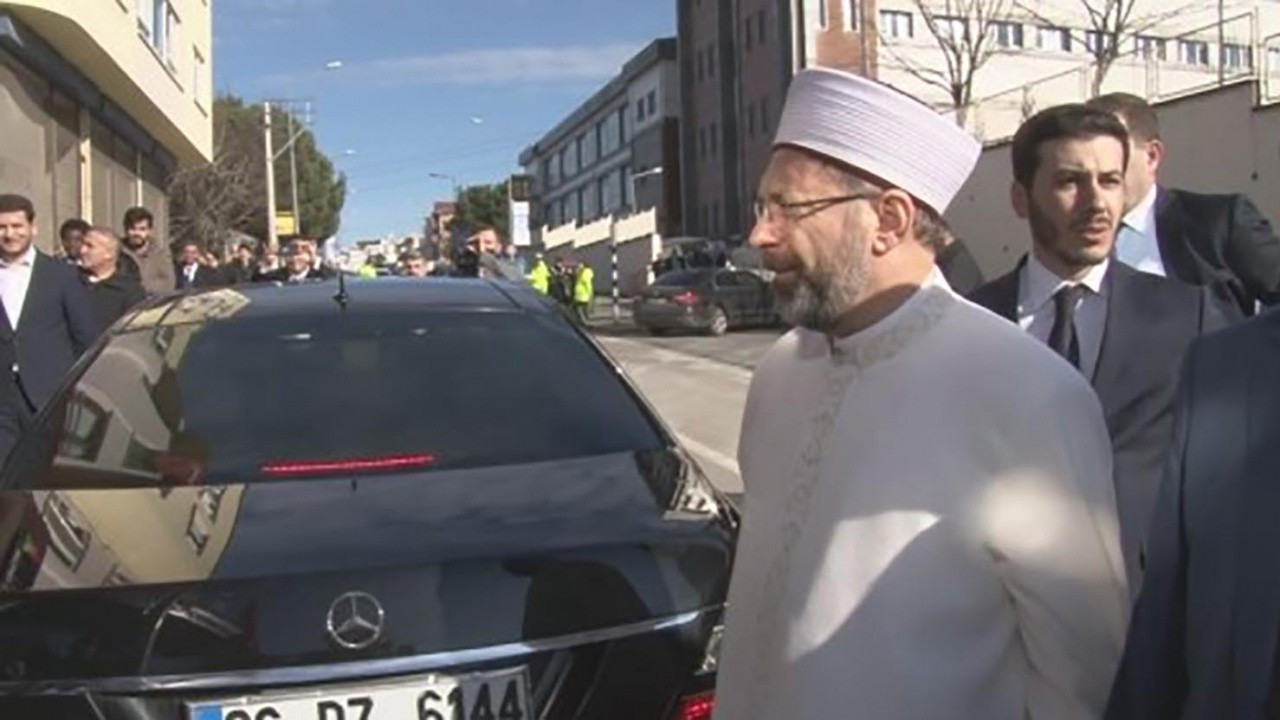Erdoğan testing Turkey's political opposition with secularism
We are once again seeing President Erdoğan ‘testing’ the political waters. The opposition is being tested with secularism. The CHP failed this test in 2012 when the 4+4+4 education system was introduced. Now it is being tested again.
While studying at İzmir Atatürk High School, on the Aegean coast of Turkey, in the second half of the 1990s, free books were brought in boxes and distributed in front of the school entrance opposite the Lozan Gate of İzmir Fair Complex. One book was titled “The Deception of Evolution” written by Adnan Oktar, a notorious religious cult leader who is currently in prison, under the name Harun Yahya. As students who had already learned not to be submissive and who had resisted being servants even though there was no social media at that time, we started arguing and quarrelling with these people every week, who we thought were protected by the police and the school administration.
The school administration knew we were not the obedient or compliant kind of students. We would advocate secular education in front of the teacher who made Islamist propaganda in religion lessons. We used to advocate for free education against paid/private education. We were against payments in state schools such as the ones under the name of contributions and report card costs. In those years, the actions of the Fethullah Gülen movement, the self-exiled Turkish preacher living in the U.S., continued in a private high school, which was said to be one of the best schools in İzmir. They would hold preparatory courses and lessons for university entrance exams, but they prepared students both for university and servitude with their approach. In those years, we watched the state encourage paid/private education. The state, at the same time was discrediting the teaching profession’s reputation. The role of religion and religious communities was increasing before our eyes.
This was after the September 12, 1980 military coup. The new liberal order that began in the 1970s in the world replaced the public debate on public decisions. Now, it was time for business administration professionals and their decisions had “no alternatives.” Those decisions that caused the rapid withdrawal of public enterprises from those fields that provided the basic needs of citizens were thus legitimized. The state, it was advocated, should withdraw from these areas; the unsuccessful poor should no longer be rewarded. The free market would adjust everything.
Thus, the subject of the public debate, the citizens, who had earned rights, would be replaced by market actors who were rich because they were successful or who were poor because they failed. Islamism, as a modern ideology, found its footing. As the official ideology of the junta within the Turkish-Islamic synthesis, both Turkish and Islamist pillars were placed within the ideological apparatus of the state. Religion courses in secondary schools were made compulsory. In those areas where the state withdrew, capital groups settled, strengthened by cult-community networks. They set up schools, opened dormitories and filled those areas where the social state was withdrawn with their solidarity and charity associations.
They had the support of the state and often its financing. They created a parallel civil law that worked against women and commercial law that nurtured their own commercial networks. The decisions of the professionals impoverished people, deprived them of democracy and enslaved them in a way. The Islamist movement and parties were thus building their grassroots. As a modern ideology, the base of Islamism was not natural, domestic, and national in this respect.
After the 1980 coup, the left-wing was systematically oppressed. Workers and citizens were pushed toward servitude before their bosses and before the state. A never-ending pressure was exerted on trade unions, student associations, and rights organizations. In the 1990s in Turkey, the state reflex against the Kurds was executed in the severest way, while the search for rights of the workers and students was drowned.
The 1990s were the years when we observed the unconcealed hegemony of counter-guerilla agents such as former police chief Mehmet Ağar. Their ties to the Gülenist clan showed up in the recent conflicts of the gangs organized within the state. These gangs threatened and killed intellectuals and dissidents. They were unpunished, enjoying their status of being the agents of the state who had the right to act illegally, or rather to act beyond the law. Islamist organizations settled in areas where the state withdrew, at the same time, they became bosses within the market.
In 1996, at the opening ceremony of Bank Asya, Prime Minister Tansu Çiller, Istanbul Metropolitan Mayor Recep Tayyip Erdoğan, Abdullah Gül and Fethullah Gülen were together with ‘business people.’ During the period of February 28, after the Turkish military memorandum in 1997, the process of religionization of the state and the society turned into a conflict within the state. The MGK, the National Security Council of that time, the founder and protector of the new liberal - Islamist order, and its extension, the press, were attempting to restrict political Islam.
Five years later, political Islam came to power. They were the best organization to implement the structural reforms of the new liberalism.
They had all their militants and they were in full harmony with the regime formed with the 1980 coup. They looked sympathetic and modern.
Many of us lived this reality day to day: We are yet again face to face with another form of “testing the waters” politics that the ruling Justice and Development Party (AKP) Chair and President Erdoğan has been practicing since the beginning of his political career. The opposition is being tested with secularism. Everything from the Head of the Directorate of Religious Affairs (Diyanet) showcasing a sword in the Hagia Sophia to his prayers at the opening of the Supreme Court, also his reference to the religious bases for any law that is to be passed in the parliament, are the questions on this test. The main opposition, the Republican People’s Party (CHP) failed this test in 2012 when the 4+4+4 education system was introduced. Now it is being tested again.
One should not make the same mistake two times. Secularism is neither an instrument of the political closure of the 1980 coup stagers nor a repressive policy. Secularism is mostly associated with equality regarding political principles. No matter what God a person believes in or does not believe in any God, it is the principle that no one should be serving anybody else. It is about the government not asking for servitude. It is for the people who make it a principle not to be a servant to anyone but to seek their rights. It is to prevent raising soldiers in schools who are ready to fight for religion. Secularism is not for those who sip their drinks in their waterfront mansions – we know what political Islam offers them. Secularism is for the benefit of those who have nothing but their labor to offer for a free and equal life. Therefore, do not be afraid of the electorate. Secularism is for the good of the people. Secularism should be advocated not from within the old reflex of the state, but from within a movement created by the will of the people.


 Turkish top cleric yet again takes stage at official ceremony, recites prayerPolitics
Turkish top cleric yet again takes stage at official ceremony, recites prayerPolitics Saying 'good morning' is a habit from pre-Islam days of ignorance: Diyanet headDomestic
Saying 'good morning' is a habit from pre-Islam days of ignorance: Diyanet headDomestic